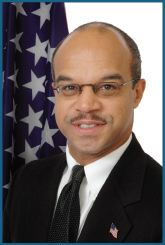
A bill to require cities and counties to name a replacement for a vacant elected office within a specified amount of time did not pass in a Senate committee, but there are plans to amend another bill with some of its provisions.
Sen. David Haley, D-4th Dist., said the Senate Committee on Ethics and Elections tied when it voted on the effort to require local governments to fill vacancies, and Senate Bill 10 did not advance. However, he said he plans to make some of its provisions into an amendment to another bill concerning moving elections from spring to fall.
Some of the committee members did not like the idea of a local government paying $150,000 for a special election because it did not appoint a replacement, Sen. Haley said. The bill was opposed by the UG, which cited the cost of the special election, and the UG also was in favor of local control.
In his amendment, Sen. Haley plans to change that provision for a special election to a new plan to break a tie by allowing the chief law enforcement officer of the county to have the deciding vote, he said. In Wyandotte County, that would be the sheriff.
Sen. Haley said this idea for a tiebreaker was first suggested by Sen. Steve Fitzgerald, R-5th Dist.
If a city or county’s charter has another provision to break a tie and fill the position, this law will not be used, Sen. Haley said.
The idea for the bill to fill vacant elected seats came from the Unified Government, where the 1st District, at large, seat has gone unfilled for nearly two years. The UG Commission deadlocked and could not get six votes for any candidate. The UG charter did not contain any provisions for breaking a tie or holding a special election in the event of a tie.
Seven candidates currently are running for the 1st District, at large, seat in the spring elections March 3. Sen. Haley said this bill could be needed if a tie were to ever happen again on a commission appointment.
“I’m embarrassed how this whole thing unfolded, and I’m frustrated that they couldn’t figure it out back home,” Sen. Haley said about the UG’s deadlock.
Sen. Haley said the bill to change local elections from the spring to the fall may have a certain amount of support in the Legislature, and that he favors odd-numbered years for local elections and even-numbered years for state and federal contests.
